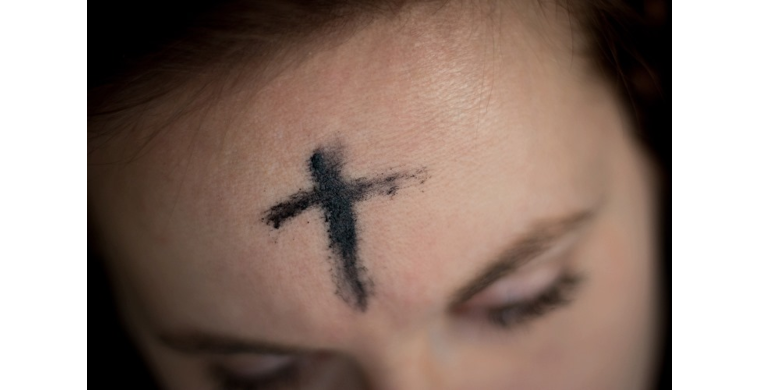"ASHES TO ASHES" -- NYET
"The practice of imposing ashes was first introduced in the church by Pope Urban II"
Thomas Cranmer forbade the use of ashes on Ash Wednesday
By Chuck Collins
www.virtueonline.org
February 18, 2023
Ash Wednesday is strange for Anglicans. First, the passage from Matthew chapter 6 is read that tells us that we should keep our religion private, not showy like the Pharisees who love to be seen by others. Then we smudge ashes on foreheads to announce our piety like neon flashing signs. And what's with the pronouncement, "Remember that you are dust and to dust you shall return"? This was God's punishment for Adam's disobedience in Genesis 3 that is hopeless even for those of us who are not already depressed. No, I want to hear, "Remember that Jesus came to seek and save the lost!" or "Remember that he was crushed for your iniquities."
"Christian holiness finds its ground not in human mortality," says Liam Beadle, "but in the sure and certain hope of the new creation."
The practice of imposing ashes was first introduced in the church by Pope Urban II in 1091 who stated, "On Ash Wednesday, everyone - clergy and laity, men and women - will receive ashes." The practice was abruptly ended by the 16th century English reformers and excluded from the Book of Common Prayer, never to be seen again officially until the 1979 Prayer Book revision.
The imposition of ashes was stopped because of its association with Medieval Catholic understandings of penance and compulsory auricular confession to a priest. The reformers opposed the blessing of material objects, such as ashes, especially when this suggested that blessing automatically conveys grace apart from faith, and they recognized the contradiction of Matthew chapter 6 with the very visible sign of piety. Imposing ashes was left out of all Church of England Prayer Books (1549, 1552, 1559, and 1662) and replaced with a service called "A Commination" for the first day of Lent.
Bishop Nicolas Ridley, in a famous sermon, called the imposition of ashes idolatry because of its potential to separate a meaningless devotional act from the alluring love of God. It is a new Anglican practice that started in small ways and places by the ritualist marching band that followed the 1830s Oxford Movement, and then gradually gained traction to the point where in the 1979 Prayer Book it is wildly prominent. Ask any Episcopalian or Anglican today and you will hear that the imposition of ashes is the central feature of our Ash Wednesday service. And even though the 2019 Anglican (ACNA) Prayer Book claimed to be faithful to the 1662 standard, like many Roman Catholic carryovers into the 1979 Prayer Book, the practice of imposing ashes has a front-and-center place in the American Anglican Prayer Book.
Thomas Cranmer in 1548, the year after King Henry VIII died, secured an order from the Privy Council to forbid Candlemas candles, the use of ashes on Ash Wednesday, and Palm Sunday palms. Even though it was a directive only for Canterbury diocese, it signaled the end of the Medieval superstitious practices in the Church of England.
Ash Wednesday has always been a part of Anglicanism (called in the 1662 Prayer Book "A Commination, or Denouncing of God's anger and judgments against sinners, with certain prayers to be used on the first day of Lent"), albeit without any mention of imposing ashes.
This beautiful and simple service was written to take the communicate from sin and repentance to grace and gratitude. Just looking at the pre-written homily that follows the ten curses in the 1662 Book of Common Prayer, those who are crushed by the sinfulness of their own sin are led to the abundance of God's grace and mercy for repentant sinners. This service is designed to go from Morning Prayer, to "A Commination," and following The Peace, into Holy Communion. This is the way to begin Lent! "For such is the force of simplicity that it lifts men's minds towards divine things more than a long series of ceremonies united by however good a meaning" - Of Ceremonies from Saepius Officio (1897).
Next week many Ash Wednesday services will include the imposition of ashes on foreheads, and many very faithful Christians will participate. We will be reminded that we will all die, and of the need we have to get our acts together before the Great Judgment. May we also be reminded that God's mercy is everlasting and new every morning. Remember, we are not left in the dust, but we are by God's grace destined to be sons and daughters of the King of Heaven in his New Creation. This seems to me to be a better way to prepare for Easter, by taking sin very seriously, but always mindful that guilt leads us to grace and gratitude. "Create and make in us new and contrite hearts, O God, that we, worthily lamenting our sins and acknowledging our wretchedness, may obtain of thee, the God of all mercy, perfect remission and forgiveness, through Jesus Christ our Lord."
FOOTNOTES
"Ashes in a Time of Plague," Samuel L. Bray
https://www.pbs.org.uk/.../09/faith-worship88-website.pdf
"No Imposition: The Commination and Lent," Liam Beadle
https://www.pbs.org.uk/.../faith-worship82-interior-web.pdfs.














